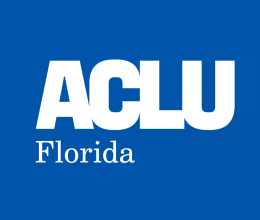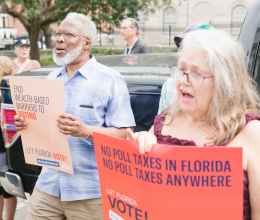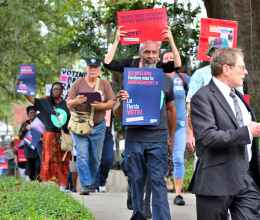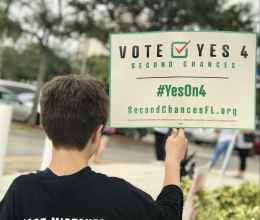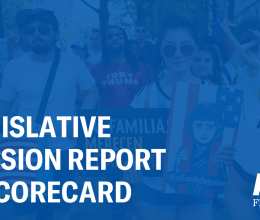“Some veterans returning home from war find it difficult to integrate back into the community,” the Supreme Court said. “Veterans with untreated substance abuse or mental health illnesses, including those with post-traumatic stress disorder (PTSD) and traumatic brain injury (TBI), may find it even harder to return home, which can sometimes lead to criminal activity.”
The high rate of suicides among veterans is another sad indicator of the challenges facing returning vets.
Before the Veterans Courts, many more veterans were imprisoned. Many of those who have been released from prison and probation have never regained their voting rights.
Almost all states restore the voting rights of people who successfully complete their sentences. Florida is one of only four states that, by their constitutions, mandate lifetime disfranchisement and require all persons convicted of felonies to petition state officials for clemency to have their voting rights restored.
The Florida Constitution gives state officials -- partisan politicians -- unfettered power to determine who is granted clemency and who is not. The Constitutional language defining that power was rewritten in 1868, in order to keep freed black slaves from voting. Today, at least 30 percent of the disenfranchised in Florida are black, even though blacks comprise only about 15 percent of Florida’s adult population.
Under new rules adopted in 2011 by the administration of Governor Rick Scott, former felons must now wait five to seven years after they complete their sentences to even apply for restoration of voting rights - depending on the crime. They are then placed on a waiting list to have their cases reviewed by the Florida Board of Executive Clemency – consisting of the governor and three Cabinet members. The board meets only four times per year, usually for one day, so it often takes years for cases to be heard.
In the four years Charlie Crist served as Florida governor, from 2007-2011, some 155,000 persons regained their right to vote. In almost seven years under the Cabinet led by Governor Scott through Oct. 7 this year, only 2807 people had their rights restored.
We are a nation that believes in giving people who have made mistakes an opportunity for redemption. I have a particular interest in redemption for my fellow veterans, but I also believe that, as a matter of simple fairness, everyone who has paid their debt – by completing prison sentence and probation– has earned the chance to be a full member of their community, including the right to vote.
U. S. veterans defended our democracy and the cornerstone of that democracy is the right to vote. We should be defending that right here in Florida as well. And politicians should not be telling veterans they can’t vote.
The ACLU and our partners in Floridians for a Fair Democracy are conducting a petition campaign to place a proposed Constitutional amendment on the November 2018 ballot. It would restore the voting rights of all who complete their sentences, except for those convicted of murderer or a felony sex offense.
We need 766,200 valid petitions by Feb. 1 to put the proposal on the ballot.
You can help. Please go to: aclufl.org/votingpetition. download a copy, complete it and send it today. Veterans can contact us at: aclufl.org/veteransvote
Colonel Pheneger is a former U.S. Army intelligence officer. He is also a member of the board of directors of the American Civil Liberties Union (ACLU) of Florida
A version of this piece first appeared in the Pensacola News Journal, Tampa Bay Times, and Naples Daily News.

